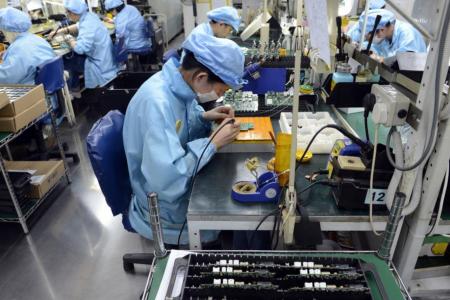NIR contribution to boost modest Budget surplus
Net investment returns projected to become top contributor to government coffers for the first time
Most economists expect a modest surplus in government coffers for the financial year ending March 31, despite the slowing economy, muted property market and rising social spending.
A surplus, when the Government spends less than it takes in, would provide leeway for Budget 2017 to contain short-term help for companies struggling to keep afloat.
Finance Minister Heng Swee Keat will be delivering the Budget on Feb 20.
Economists said that government revenue growth remains robust despite the slowing economy.
Takings from the goods and services tax, stamp duties and other levies and taxes are likely to be higher than the previous financial year, said OCBC economist Selena Ling.
The property market "has not softened as much as feared" and there was still "a fair bit of healthy spending" across the economy despite sporadic volatility, she noted.
Ms Ling added that last year's economic growth numbers are likely to be revised upwards from earlier estimates on stronger-than-expected showing in manufacturing.
She expects a "bumper surplus" above $5 billion for this financial year, while UOB economist Francis Tan has predicted a Budget surplus of about $6.7 billion, citing a pick-up in economic activity since the second half of last year.
Official projections tip a surplus of $3.44 billion for the year, thanks largely to a bumper net investment returns (NIR) contribution.
The NIR framework allows the Government to spend up to half of the long-term expected real returns from GIC, the Monetary Authority of Singapore and Temasek Holdings.
The projected $14.7 billion contribution will be the top contributor to government coffers, displacing corporate income tax for the first time.
Though the Budget is expected to be in surplus, government spending is likely to continue rising especially as the country grapples with an ageing population and a shift towards more social support.
SUSTAINABLE
Last month, a Parliamentary committee asked the Ministry of Finance (MOF) to ensure that government spending remains sustainable in future, without imposing undue tax burdens on Singaporeans.
The MOF had said it would review both expenditure and revenue to ensure fiscal sustainability.
Some steps have been taken on the revenue front.
In Budget 2015, for instance, the Government announced it would raise marginal tax rates for the top 5 per cent of income earners.
"The economy may be on the back foot but there will still be revenue growth." CIMB Private Bank economist Song Seng Wun
Changes in earlier years included increasing tax rates for higher-value residential properties.
Setting aside the fact that it is impossible to estimate the NIR contribution, some economists expect the Budget position for the coming financial year to be similar to this one.
"The economy may be on the back foot but there will still be revenue growth," said CIMB Private Bank economist Song Seng Wun.
"Some sectors, like manufacturing, were doing better in the last few months of last year and we will have to see if that spills over to the rest of the economy in the coming year."
DBS economist Irvin Seah expects the Budget to be "modestly expansionary", with a significant share allocated to helping companies tide over this period of slower growth.
The bulk of resources, however, will go to pressing on with medium-term, industry-specific economic restructuring efforts.
"This will be an enterprise- focused Budget," said Mr Seah.
But Mr Song believes "there is still room for the Government to hold on to its bullets in case things get worse".
While sentiment is weak, especially given external geopolitical developments, "it might not warrant the Government helping all companies", Mr Song said.
"The focus would be on sectors which have been hit harder. On the whole, the approach will remain very targeted."
Get The New Paper on your phone with the free TNP app. Download from the Apple App Store or Google Play Store now



